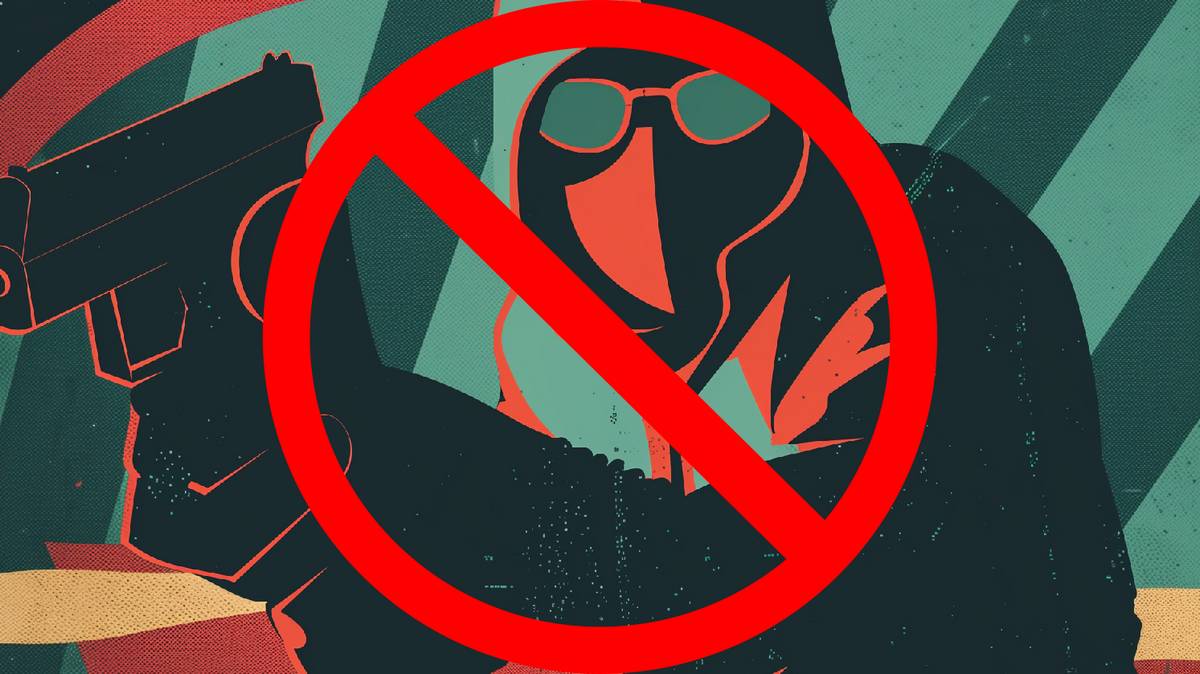You’ve probably never seen a business have an anti-criminal policy, and in a perfect world this might not be needed. This policy is not in place to “stop crime”, but we do need clear criteria for selecting our customers. It may seem strange that a business would like to have less customers, so this blog post lists out the reasons for having some restrictions in place!
1. Genuine dislike of actual criminals
First of all, we really do not want criminals as customers. This business and its customers might become somewhat of a community at some point, and keeping criminals out from day one is good for everyone. Criminals bring all kinds of risks to the business, starting from reputational risks. They are simply to be avoided, for many different reasons.
Unfortunately there is a lot of potential overlap between those with international lifestyle, and those with a criminal lifestyle. Criminals often flee abroad to escape prosecution, and we don’t want to be helping that.
2. Government definitions of “criminal” have stopped making sense
Unfortunately governments cannot be trusted anymore to define who is or isn’t a criminal. Some governments have started to treat clear crimes such as shoplifting as at least permissible, if not outright legal. Meanwhile, the ever-growing law/regulation jungle causes too many non-criminal things to be treated as crimes, while the biggest criminals roam free with their reputations (mostly) intact.
While Sovereign Landing as a company cannot fix these societal problems, we have no obligation to accept criminals as customers. Many of these “factual criminals” are not in jail, and many are even using the legal system as a shield for their crimes. Nevertheless, these people should be shunned by civilized society.
3. Scammers, especially crypto scammers
While corrupt career politicians are the most egregious example of the above problem, perhaps an easier-to-understand example are crypto scammers. Some of the smarter ones in this group operate so that they do not break any existing laws (or operate in legally very gray areas) and are able to continue their crimes.
In Finland, local top participants in the Onecoin pyramid scheme were never charged and remain free. In the US, the top Onecoiners got rightly jailed. Many other public crypto scammers remain at large, perhaps never getting convicted of what is clearly intentional and well-planned fraud. Regardless of what legal system these people fall under, they should be considered criminal.
4. Tax offenders
While it could be argued that taxes are immoral and trying to duck them in any way possible shouldn’t be considered a crime, we need to be pragmatic: governments are pretty hardcore about not agreeing with that point of view, and “criminal tax avoiders” can bring too much heat and reputation risks to us.
Beyond just the government disagreeing with this view, if you live in a country where you’re perhaps “ducking taxes in”, other people living there may not be too happy with having to pay taxes when you don’t. This can easily become a huge reputation risk, so please don’t ask us to aid in such schemes, because we won’t. Here’s what to do instead:
You should pay whatever governments think you owe them – right or wrong – and then actively work on reducing your future tax obligations in legal ways. It’s not too difficult to do in an open, transparent and indisputably morally correct way. We are here to help with the first step: actually moving somewhere where the governments haven’t (yet) bankrupted themselves so completely, and are therefore able to keep the tax burden at healthier levels. Very few people would argue that there’s anything wrong with that!
5. The other kind of “tax crime”: morally corrupt politicians
The damage that politicians can wreak on the people is perhaps the worst kind of financial crime, because it usually goes undiscovered by its victims – at least long enough that it’s too late to do anything about it when the debt comes due.
A lack of something (like what is caused by unsustainable government debt) is difficult to detect, as compared with something first existing and then going missing (being stolen). The end result is not that different: wealth that could & should exist, now doesn’t, whether people see it or not. We shouldn’t pretend that certain groups or individuals are not benefiting from dumping this debt on others…
Why this part could also be called the "Sanna Marin policy"
Perhaps one of the most egregious examples of this kind of a fully legal, even celebrated "non-crime" is the former prime minister of Finland. Without going into too much detail, after her time as prime minister, she got a lobbying job abroad, essentially fleeing the consequences of her previous politics that led to insane debt increases. In my opinion, this case has the smell of an unashamed mentality of “taxes for you, money for me”:
1. Funnel public money abroad to shady purposes
2. Get a high-paying foreign job with probably even shadier sources of funding (I really have zero information on whether 1 & 2 are connected - who knows - but at the very least it's a bad look)
3. Move abroad, leaving others to deal with this debt they can't afford to pay
(Later fact-check edit in September 2024: it seems that Sanna is getting paid through her Finnish company, essentially keeping her tax residency in Finland through that - so point 3 above was incorrect. Now, there are other issues and questions related to this story, but that gets too off-topic. Just wanted to straighten this fact!)
It’s noteworthy that these types of politicians often rise to power by bashing honest & hardworking people, whom they label as “the rich”, while hinting that those people became rich by unjustly gaining money from other people. Is that how these politicians later justify to themselves doing exactly that? “If that’s how the game is played, let me play it then“? Or are they just simply sociopaths?
Whatever their intentions, it is my strong opinion that we should stop tolerating this kind of behaviour, and call it out publicly as what it seems like - even if we may never have all the facts. I'm under no assumption that these kinds of destructive shenanigans would ever be classified as actual crimes, but perhaps we should start viewing them as such?
What’s the point – does this policy actually do anything?
Sure, you could argue that this kind of a policy is arbitrary, precarious and could even be completely useless. Perhaps so, but I think this is probably very well in line what most people would consider “just”. Possibly the greatest source of crime in our world is criminals and “legally non-criminals” exploiting the wide delta between “just” and “legal”. Perhaps the most we as a company can do is bring more awareness to this problem. So – congratulations on now being more aware of it!
Even if you do deem our policy to be completely arbitrary, at least it’s open and transparent, and has been from day one. We do not pretend this to be any kind of law. All this does is narrow down who we accept as customers, something that every business should have the right to decide. At the very least, we now have clear grounds to refuse service to bad actors who might come knocking on our door.
Lastly – you’re free, and encouraged, to copy our policy to your own business!





0 Comments